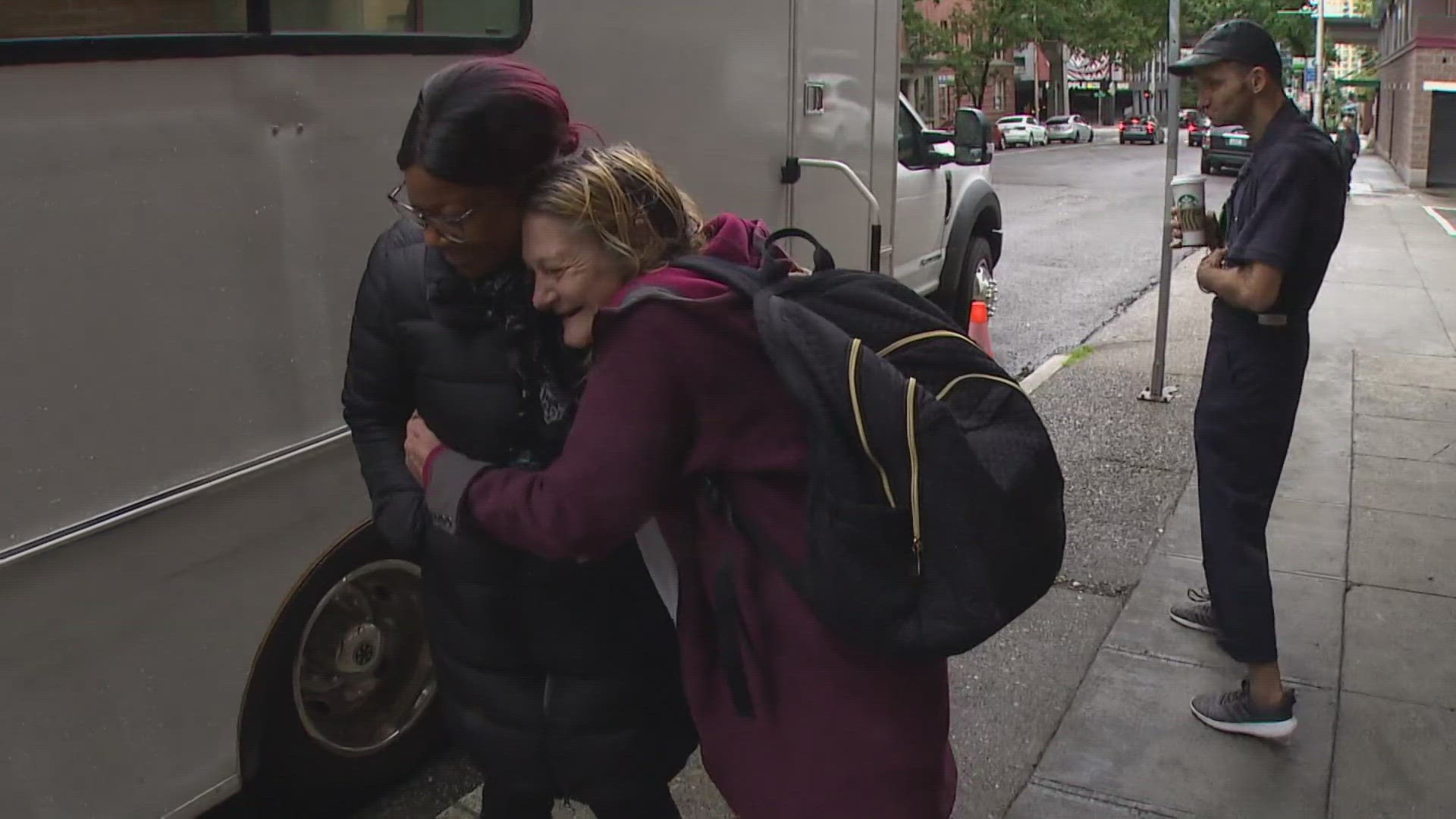SEATTLE — There have been 785 people who have died from fentanyl overdoses in King County so far this year, which is putting Seattle in a drug crisis.
One local group is working to expand a mobile treatment program to help more people before they become part of that statistic.
On the corner of Fourth Avenue and Blanchard Street in Seattle’s Belltown neighborhood is where Robin Wise has been finding hope.
“I'm 60 years old and I've been doing dope my whole life,” said Robin Wise. “And this is the only type of treatment I've ever done. And it's working, it's actually working!”
Wise has been clean for four weeks, ever since she started on methadone from the Evergreen Treatment Services Mobile Medication Unit. Before treatment, she said she was using meth and fentanyl, drugs that have taken the lives of almost everyone she knows.
“I've lost a lot of friends, a lot,” said Wise.
Preventing deadly overdoses is the goal of the Treatment in Motion program, providing medicine that helps with drug cravings and withdrawals.
“With medication, we also provide counseling, as well as case management, peer services, medical providers and nurses that work with our folks,” said Sean Soth, the director of health integration and innovation at Evergreen Treatment Services.
This unit currently serves around 50 people, but the City of Seattle has allocated $1 million to Evergreen, which will be used in part to expand and fund a second mobile unit so they can reach more people in more areas of Seattle.
“Pioneer Square is definitely on the list,” said Soth. “We also have some partners in the Ballard area that are very interested in getting services out there."
Evergreen hopes an expansion of services can lead to more lives being saved.
“Every day that somebody walks through our doors and gets medication, we know that they're significantly less likely to die from overdose. That's meaningful,” said Soth.
They can expect more people to walk through those doors, as Wise is on her own mission to not only save her own life but the lives of others as well.
“I've already brought two people here,” said Wise. “Drag them right off the street, and say, 'Come on! You can do this!'”
In addition to the second mobile medicine unit planned here in Seattle, they are also launching a mobile medicine unit in Olympia next month.

